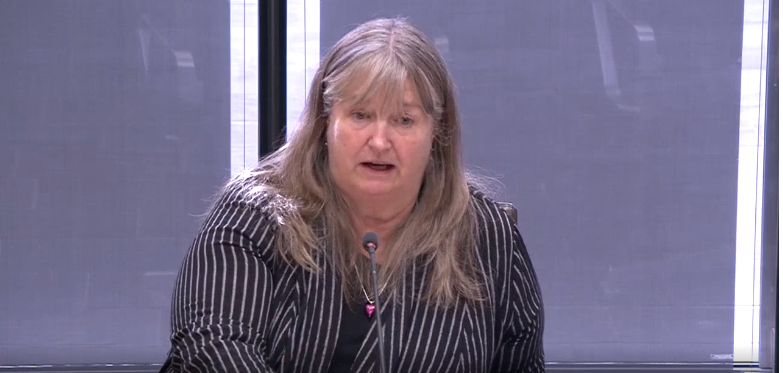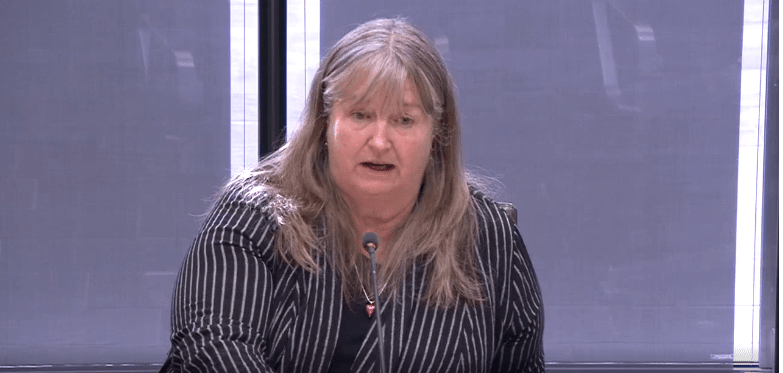As we approach winter, rough sleeping is perhaps the most visible reminder that homelessness is still a reality for too many people across Wales. The bedding in doorways, the tents so incongruously pitched next to offices and shops and, of course, the rough sleepers themselves all bring into sharp focus the scale of the challenge faced by everyone working to end homelessness.
October 2019 saw homelessness in the headlines. At the start of the month the Office for National Statistics (ONS) published statistics on deaths of homeless people in England and Wales. ONS found that the mean (average) age at death was just 45 years for males and only 43 years for females in 2018. That compares with 76 years and 81 years respectively for the general population. Those stark figures make uncomfortable reading and show the human cost of homelessness.
Strategy
As the Welsh Government’s 10 year Homelessness Plan comes to an end, it launched a new homelessness strategy on 8 October with a pledge to make homelessness rare, brief and unrepeated. Tackling homelessness is complex and it can be challenging simply to engage with rough sleepers. The new strategy advocates a more individualised approach and a desire to get a range of public services, not simply housing services, working collaboratively to prevent and alleviate homelessness.
On 10 October, World Homelessness Day, the Welsh Conservatives launched their 10-point action plan to tackle homelessness in Wales (PDF, 6.2MB) with commitments to make housing a basic human right (PDF, 9.6MB) in Wales and to appoint a homelessness Tsar. The following week saw the first report of the Welsh Government’s Homelessness Action Group, chaired by Jon Sparkes, Chief Executive of Crisis. That report recommended a number of practical steps that could be taken quickly this winter, focusing mainly on the four urban areas of Cardiff, Swansea, Newport and Wrexham where rough sleeping is particularly visible, including:
- More use of assertive outreach services that target the most disengaged rough sleepers with chronic support needs;
- Voluntary suspension of some laws and regulations; and
- Ensuring there is enough emergency and temporary accommodation.
All of the short-term recommendations from the Action Group were accepted by the Welsh Government and will now be taken forward. Jon Sparkes has written a series of blog posts providing updates on the work of the Action Group and you can read these on the Crisis blog.
What is the Assembly doing?
Publication of the Action Group’s report and initial recommendations happened the same week as the Minister for Housing and Local Government, Julie James AM, was scrutinised on the Welsh Government’s efforts to tackle rough sleeping by an Assembly Committee. The Equality, Local Government and Communities Committee has maintained a long-standing interest in rough sleeping following its 2018 inquiry, Life on the Streets: Combating and Preventing Rough Sleeping in Wales(PDF, 900KB).
Shortly before taking evidence from the Minister on 17 October, Committee Members had the opportunity to hear from Cardiff Metropolitan University’s Dr Helen Taylor about research she has conducted into rough sleeping as part of an academic fellowship with Senedd Research. While rough sleepers may fall into one, or several, of the priority need categories that entitles an applicant to the “full” homelessness duty and a right to be provided with accommodation, current legislation does not make rough sleepers a specific priority need group.
Helen’s findings highlight the complexity of the challenge facing policymakers and put forward a number of recommendations from service users. Recommendations include calls for more flexibility in the system, more staff with lived experience of homelessness and establishing a regulator of homelessness services. Helen’s full research, and a comparison of the use of priority need in dealing with homelessness across the UK, can be viewed on Cardiff Metropolitan University’s website.
After listening to Helen’s findings, Assembly Members were told by the Minster that the Welsh Government had worked closely with the four local authorities that were the focus of the Action Group’s initial recommendations. Committee Chair John Griffiths AM asked the Minister whether those local authorities had any concerns about the Action Group’s proposals for a voluntary suspension of intentionality and local connection criteria, as well as treating rough sleepers as automatically in priority need over the winter period. Those changes will all have resource and other practical implications for local authorities.
The Minister sought to reassure local authorities about the proposed changes and said that:
What we don't want is somebody not getting the help they need because the authority isn't in a position to know at that point that they can sort it out. So, we've just tried to reassure the authorities, and I'm saying it absolutely categorically here in the committee that we will sort that out upstream and that should not be a barrier to assisting somebody who is on the street.
The Committee also raised the issue of a right to adequate housing as called for in a campaign led by Tai Pawb, CIH Cymru and Shelter Cymru. When asked by Dawn Bowden AM about what a right to adequate housing might look like in practice, the Minister confirmed that she was considering whether to place a requirement on all local authorities to have “due regard” to adequate housing. She said this could be included in the forthcoming Local Government (Wales) Bill. While this is not the same as a right to adequate housing, stakeholders told Inside Housing magazine that this would be “a very welcome and innovative first step”, but also called for the Welsh Government to go further and provide a right to housing that could be enforced in courts and tribunals.
What next?
Those efforts to make a difference this coming winter are just the beginning of a more strategic approach to ending homelessness, and a number of key developments are planned for 2020.
Publication of the first action plan to accompany the Welsh Government’s new homelessness strategy is expected once the Action Group’s work is completed in March. The work of the Action Group will inform the action plan, as will Welsh Government commissioned research led by Cardiff University into the use of priority need in Wales.
Will Wales face the same challenges a year from now when we approach winter 2020/21? Nothing is certain, but there will be further scrutiny of homelessness policy by politicians, the housing sector and others as solutions are sought to change a system that has allowed significant numbers to fall through a safety net.
Article by Jonathan Baxter, Senedd Research, National Assembly for Wales








